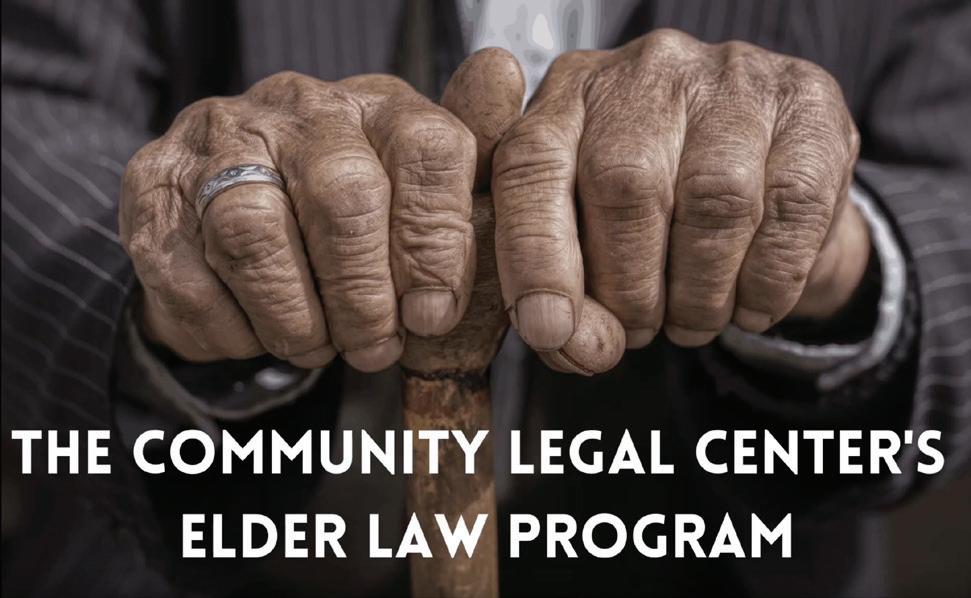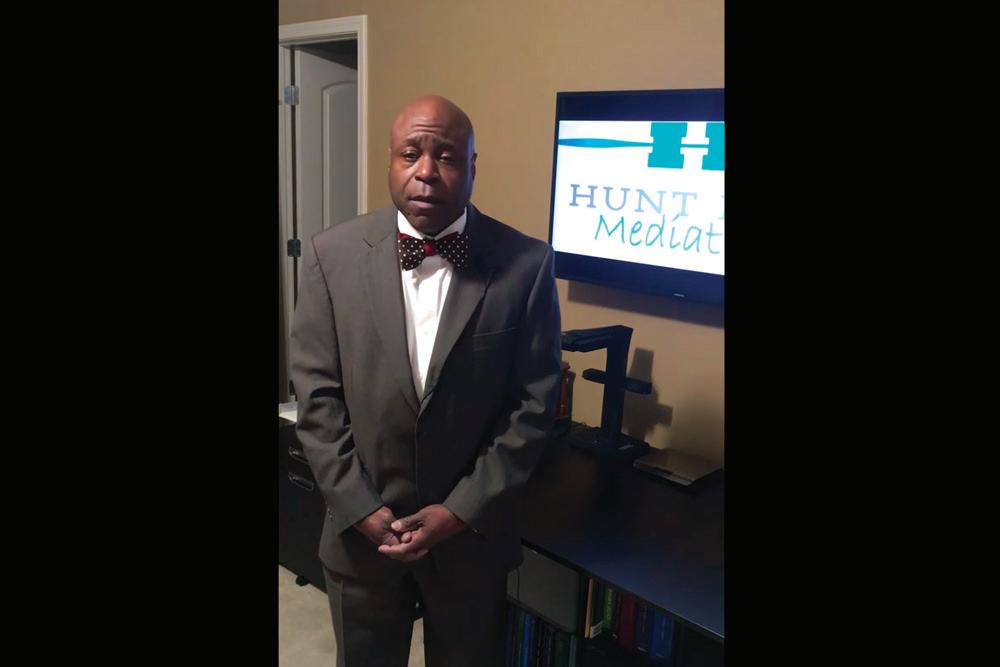
3 minute read
Community Legal Center: Caring for Seniors in a Time of COVID
Caring for Seniors in a Time of COVID
By Elder Law Attorney, KAREN HENSON
Well, here we are 14 months into COVID shutdowns, masks, social distancing, and finally vaccines—with the hopes that NEXT year will be better. This virus came for our most vulnerable, our seniors.
“Adults 65 and older account for 16% of the US population but 80% of COVID-19 deaths in the US.”1
The experts told us the best way to keep seniors safe from the virus was to not visit them in person. Unfortunately, while isolating seniors is good for preventing COVID-19, it is just the shroud of secrecy under which abuse thrives.
As a partner of the Coordinated Response to Elder Abuse (“CREA”) in Shelby County, I can say 2020 was not as busy for CREA as one might have thought. We expected a surge in reports, but other than the financial/ internet scams that thrive around all chaos, the reports remained steady but not out of control. Of course, with all the technology and extra steps we all have had to adopt, it just felt like more work.
Isolation makes seniors more vulnerable. Telemedicine does not work if granddad does not know how to work Zoom or does not have Wi-Fi. Doctors cannot see medical neglect if their patients are not coming into the office. Agencies that normally lay eyes and hands on aging populations disappeared, in a sense. Adult Protective Services cannot intervene if they are not allowed to enter the home for fear of COVID. Code Enforcement used to walk neighborhoods and check in on seniors, as our more depressed neighborhoods typically have a high percentage of senior citizens who struggle to maintain their properties, but COVID prevented that personal touch. With the world slowly opening back up and most seniors having gotten their jabs, we are finally seeing
Community Legal Center received a grant from the Memphis Bar Foundation for its Elder Abuse Services. Learn more about how the CLC protects the dignity and safety of the elderly in this video.

seniors face to face and putting hands on them more than a year later.
We are starting to see the reports go up again. Stimulus funds have been hijacked. Abusers who have been able to shut out the prying eyes of concerned family, citing COVID protocols, are being exposed. The isolation has also been devastating to seniors aging alone who had mild to moderate dementia. Without human interaction and stimulation, dementia and depression progress exponentially. These are the folks whose files I expect to hit my desk over the coming months. I file petitions for conservatorship of seniors who have slipped into incapacity and can longer care for themselves or protect themselves from abuse, and COVID created a perfect storm for those who were already struggling with their aging bodies and minds.
I’ll wrap things up by saying all attorneys, not just elder law attorneys, are going to start seeing longtime clients facing these issues. You may be experiencing this with your own loved ones. If you suspect a client or family member needs intervention because they are aging alone or someone is taking advantage of them and you are unable to assist due to conflicts, please make a report to the Family Safety Center at 901-222-4400. They are the hub of CREA and have connections to all the resources a vulnerable or abused elder may need. If anyone would like to know more about the work CREA does or can help by serving as a pro bono guardian ad litem (“GAL”), please email me at karenh@clcmemphis.org. I have a short list of wonderful Shelby County attorneys who have agreed to serve as my GALs, but I can always use more. I can provide any training necessary, and the typical case only involves about 5-8 hours over a couple of months. It is truly gratifying work, as well. You can make a genuine difference in an abused elder’s life, and that’s something we can all get behind.
And here’s to this once in a century event truly being once in a century.
1 https://www.kff.org/coronavirus-covid-19/issue-brief/what-share-ofpeople-who-have-died-of-covid-19-are-65-and-older-and-how-does-itvary-by-state/












